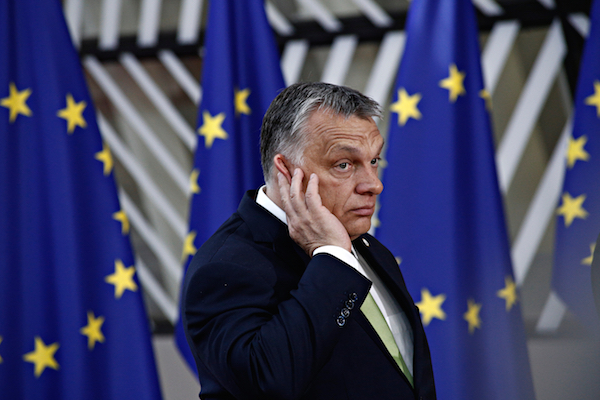
A Global Pandemic
Covid-19 and the Seizure of Power
Read a summary using the INOMICS AI tool
As the world is ravaged by COVID-19, governments everywhere are enjoying burgeoning support. A glance at approval ratings finds presidents, prime ministers, even autocrats, overwhelmingly popular, in some instances irrespective of their actual performance. Of course, this is unsurprising: there’s long been a history of populations coalescing around established leaders in times of crisis. Amid uncertainty, we find their increased visibility reassuring. Speaking to the nation they look competent and confident; we feel inclined to trust them, and more often than not, we do.
But are we too generous with our trust? Recent developments in places as far-flung as Hungary and the Philippines remind us that there’s a second history, running parallel to improving approval ratings, of governments using crises to enhance and consolidate their power. It’s a darker history, and one we would do well learning from. Alas, there are concerning signs it’s set to repeat itself.
Tailored to tyrants
In many ways, the current moment is primed for exploitation. If health systems are to withstand COVID-19, it’s essential that strict restrictions are placed on public life, civil liberties reduced, and, to enforce it all, state power extended. In concert, this is music to the authoritarian’s ear; a description of an idealised society. It's a world in which power-grabs can be carried out publicly, legitimised by rousing cries of unity, and all anxious voices comforted by the knowledge that everything is in the ‘national interest’. It's, above all, an opportunity.
Indeed, short of war, no other emergency comes close to matching the ubiquity of COVID-19’s fallout. Consider, for example, terrorism. Terrorist attacks can scar populations and cause great economic damage, but in scale, they pale in comparison. They tend only to hit a contained area which limits the economic impact, and, despite being designed to scare, the panic created is also less widespread. A pandemic, on the other hand, knows no boundaries, equalising the terror and economic damage it wreaks, the village dweller suffering in similar ways to the city-based socialite. And this is key: while fearing for health or financial well-being, people are at their most compliant, their most likely to surrender their freedom.
What further sets COVID-19 apart is that the consensus response is to stay indoors. In other emergencies - during war, after a natural disaster, or following a terrorist attack - agency can be claimed by citizens, armies can be joined, humanitarian aid contributed, or marches defiantly attended. In stark contrast, under lock-down people are, by-and-large, left impotent, reliant on their leaders. Apart from online, there’s no means to congregate in protest, a Twitter storm the most threatening collective act. Few would say it packs the same punch.
 They've wasted little time
They've wasted little time
Nowhere in Europe has this situation been more obviously seized than in Hungary, where an already strong governing hand looks now to have an unassailable grip. In response to the crisis, Prime Minister, Victor Orban, has passed legislation that has prorogued the legislature, permitting him to rule by decree, and suspended all elections and referenda. Most alarmingly, no sunset clause has been set. To say that Hungary is now a dictatorship is no exaggeration; it’s analytically accurate. With the last window dressings on his ‘illiberal’ democracy gone, Orban is now a dictator in the European Union. He can unilaterally change any existing Hungarian law and imprison people for spreading ‘false’ information, a phrase terrifyingly, and intentionally, vague, lending it a versatility that could easily be turned on political opposition.
This is threatening a beleaguered EU already struggling to cope with COVID-19. For in truth, it has few options. Many point to Article 7, which if invoked would suspend Hungary’s EU membership. But for this to pass unanimity among the EU27 is required, and as has happened in the past, Poland will likely veto any moves against Hungary, leaving an impasse.
There’s logic behind Poland’s support, too. Polish President, Andrzej Duda, is also looking to benefit from the current situation. Having hollowed out much of Polish democracy, the ruling party is now refusing to cancel the early May presidential election. With the country under lock-down, opposition parties are unable to effectively campaign, and one of the only remaining channels left in which to do so, television, is monopolised by Duda. There could also be a further motivation: polling shows that higher turnout would threaten Duda’s chances of victory. Insisting that it goes ahead in a moment that would significantly decrease turnout looks very much in his political interest.
But these trends are far from exclusive to Europe. In Israel, disgraced Premier, Benjamin Netanyahu, has also spied an opportunity. Currently facing a range of criminal charges that include breach of trust, accepting bribes and fraud, he’s used the pandemic as a pretext to close the courts - postponing his own trial in the process - and suspend the Israeli Parliament, allowing him to lead without oversight. Prior to the crisis, his political career looked all but over; no longer. Turkmenistan, which still implausibly claims yet to have contracted one case, has banned the use of the word ‘coronavirus’. Its utterance now carries with it a hefty fine. In the Philippines, President, Rodrigo Duterte, much like Orban, has outlawed the distribution of ‘false’ information, his violent past making the vagaries around what constitutes ‘false’ incredibly worrying. And just this week, Hong Kong has been accused of using the crisis as cover to arrest pro-democracy candidates ahead of elections in September. The trend, like the virus, is dangerously pervasive.
Post-COVID-19
Although difficult to imagine, doors will eventually reopen, and we will be freed from our current imprisonment. The question is: what kind of world will we find? It will be a different world, no doubt, one wracked by suffering, recession, and impoverishment; that, at least, seems assured. But what of freedom? Once the disease is contained will seized power be relinquished? Or will clenched fists remain clamped shut? These questions are not just for Hungarians, Israelis, and Filipinos, either. Time and again, history has shown how reluctant leaders, even of democracies, can be to lift a ‘state of emergency’ and return the powers they grant. France lived under such a state for two years between 2015-17, with many complaining of the undue power it afforded the government. As things return to normal, citizens must, wherever possible, hold their representatives to account. They have to be vigilant. The virus has already taken too many lives, we must do our utmost to ensure that it does not take our freedom too.
-
- Postdoc Job
- Posted 2 weeks ago
Postdoctoral Research Fellow Opportunity
At University of Notre Dame in Notre Dame, United States
-
- Professor Job
- Posted 1 week ago
Assistant, Associate or Full Professor at Chung-Ang University
At Chung-Ang University in Seoul, South Korea
-
- Postdoc Job
- Posted 1 week ago
6-Year Postdoc with Option for a PermanentContract (f/m/d, 100%)
At ZEW – Leibniz-Zentrum für Europäische Wirtschaftsforschung GmbH Mannheim in Mannheim, Germany













